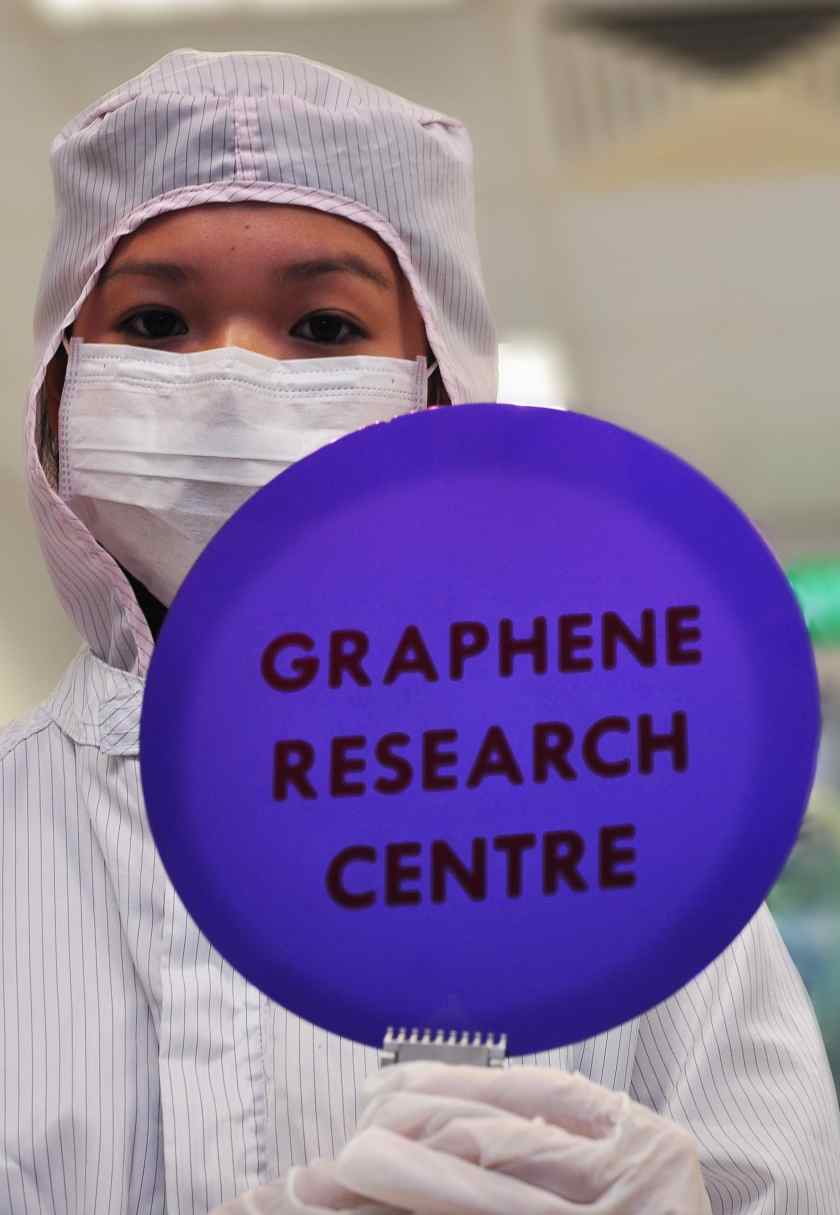Fuji Electric (Malaysia) Collaborates With National University of Singapore
On graphene research project for HDD media
This is a Press Release edited by StorageNewsletter.com on December 23, 2013 at 3:01 pmImagine faster, smaller and more durable storage in your laptops, smart phones and tablet PCs, where future HDD drives can store information at the capacity in tens of terabytes instead of the current capacity of gigabytes.
These are potential outcomes of a new research collaboration, embarked upon by the Graphene Research Centre (GRC) at the National University of Singapore (NUS) Faculty of Science and Fuji Electric (Malaysia) Sdn. Bhd.
The two parties are working on a joint research project that aims to develop magnetic HDD media incorporating graphene for a new generation of storage devices.
Discovered in 2004, graphene is one of the crystalline forms of carbon, comprising of a single layer of carbon atoms, which is revolutionising several different industrial sectors. This collaboration looks to explore how graphene may complement current HDD media technology. Due to the prominent properties of graphene, it is envisaged that when applied in HDD drives, graphene has a role of providing a protective layer, allowing for the magnetic heads to approach closer to the HDDs. This brings about higher data capacity within HDD drives that can store a much larger amount of data with smaller HDDs.
This research project is led by Professor Antonio Castro Neto and Assistant Professor Barbaros Özyilmaz from GRC and Lawrence Ng Wah, senior manager, research and engineering department, Fuji Electric (Malaysia).
The collaboration sees GRC integrating graphene layers with conventional magnetic media in a number of steps. Fuji Electric will conduct necessary assessments to ensure the new product is suitable for commercialisation, including corrosion, durability and capacity tests.
NUS is the sole proprietor of this new technology.
“The Graphene Research Centre is interested in bringing ground-breaking scientific and technological discoveries to people’s everyday life and have a real impact in Singapore’s economy. The collaboration with Fuji Electric (Malaysia) Sdn. Bhd. will open the doors for a new technology that can have long lasting consequences in science and industry,” said professor Antonio Castro Neto, director of the graphene research centre and a distinguished Pprofessor from the department of physics, NUS Faculty of Science.
“Fuji Electric (Malaysia) Sdn. Bhd. is manufacturing the world-class recording media with as much as 1TB/3.5″ and 500GB/2.5″ capacity for HDD. The reduction of the head-disk spacing is one of the most important challenges to keep more than 20% annual increase of the recording density of HDD, and the thickness reduction of the protective layer is one of the key technologies. Current thickness of carbon protective layer which is deposited by using PECVD method has reached as thin as 1.8nm. However, we believe that new technology must be needed to achieve the thickness of less than 1.0nm, and the graphene technology must be one of the promising candidates. We hope strongly that the collaboration with GRC/NUS accelerates the implementation of the new technology for future high density HDD,” said Matsuo Sota, senior director, research and engineering, Fuji Electric (Malaysia).
“In today’s technologically-advanced, knowledge economy, there is a growing demand for higher storage capacities. This research project between GRC/NUS and Fuji Electric (Malaysia) aims to incorporate a new material – graphene – to meet these requirements. With graphene’s sought-after properties, such as biocompatibility, high-tensile strength and good conductivity, NUS has established itself as a leader in graphene research. We welcome partnering with industry players to explore the various applications of this material across various sectors, such as biomedical sciences, consumer electronics and energy storage,” said Irene Cheong, Director NUS industry liaison office.
This office, which is part of NUS Enterprise, facilitated this industry collaboration.













 Subscribe to our free daily newsletter
Subscribe to our free daily newsletter
